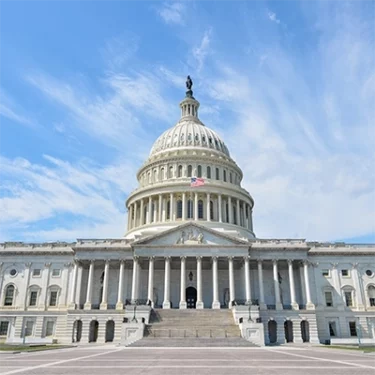It’s time to take our moonshot.
As we prepare to observe the 60th anniversary of the signing of the Community Mental Health Act of 1963, it’s fair to acknowledge that we’ve made progress in efforts to help those with a mental health or substance use challenge. But, as Richard Wells said in his book about the history of our movement, it is fair to say that things are “better, but not well.”
So today — on World Mental Health Day — we need to go big. We need to take our moonshot.
But what does that look like?
It means continuing to pursue policies and programs to recruit and retain more mental health and substance use treatment professionals to address a crippling workforce shortage that hinders our ability to provide treatment and care.
It means relentlessly advocating on behalf of our member organizations that provide vital mental health and substance use treatment and care.
It means chipping away aggressively at the fear and discrimination that so often prevent people from seeking treatment.
And it means pursuing greater investment in Certified Community Behavioral Health Clinics (CCBHCs). They are the moonshot we need now because they:
- Serve all people, regardless of ability to pay.
- Eliminate barriers to access among those traditionally underserved, including justice-involved individuals, veterans, older adults, youth and homeless.
- Eliminate wait lists so people receive care immediately.
- Expand the capacity of states to address the overdose crisis.
- Establish innovative partnerships with law enforcement, schools and hospitals to improve care, reduce recidivism and prevent hospital readmissions.
- Improve integration of physical care with mental health and substance use treatment and care.
- And they create jobs.
In a new paper released last week during the The Kennedy Forum‘s Alignment for Progress Conference, we provided detailed guidance for clinics that want to make the transformation to a CCBHC and for states to support this new model of care.
Certified Community Behavioral Health Clinics: A National Vision for Transformation in Community Behavioral Health Care is a blueprint for our moonshot.
Operating and certified in 12 states, CCBHCs have seen widespread bipartisan support in the last decade. Just last year, the CCBHC demonstration program was expanded to add 10 new states every two years, beginning in 2024. Even with additional federal grants supporting hundreds of clinics toward becoming CCBHCs, and despite the model’s proven success, most communities across the country don’t yet have access to a CCBHC.
Historically, community provider organizations have struggled under a siloed, underfunded system that fails to fully support access to timely, comprehensive services, care coordination and population health management. So, far too many people cannot access services when and where they need them and they often end up in hospitals, emergency departments or jails for needs that could have been better addressed in a community setting.
The CCBHC model changes this paradigm. It establishes robust standards for the field that articulate a vision for comprehensive outpatient mental health and substance use treatment and care available to all individuals and families, regardless of where they live or their ability to pay. Services must be coordinated and integrated across the health care system and other social service sectors to meet individuals’ full range of needs, and CCBHCs must proactively engage with unserved and underserved populations to reduce the unmet need for care.
The CCBHC model of care is supported by a Medicaid prospective payment system designed to cover a CCBHC’s cost to expand services and reach new populations. The payment model supports historically non-billable activities known to be critical for improving client outcomes, such as care coordination, outreach and engagement and data-driven population health management.
Together, the certification criteria and payment system enable clinics to transform the way they serve individuals in need and improve their wellbeing and health outcomes.
Today’s goal must be to ensure that everyone in the U.S., no matter who they are or where they live, has access to high-quality, comprehensive care at a CCBHC.
That is our vision. Now it’s time to take our moonshot.



